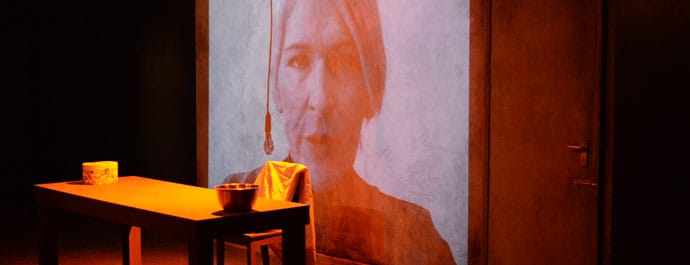In many ways this has been a fantastic year. I feel so very honoured that ARC and Little Cog were successful in our bid for Spirit of 2012 funding for our unique ‘Cultural Shift’ project. I also feel extremely privileged to have worked with such a fantastic team at ARC and amazing disabled artists and participants. And as the first year of our project grows into the second, I remain optimistic, confident and full of hope!
Cultural Shift was structured to reflect our ambitions – we have set our aims high to realise a real culture shift in disability equality and the arts, in how disabled people and disability is both perceived and represented, and in the quality of cultural provision which genuinely understands and supports the experiences of disabled people. So this meant we needed to get cracking and actually do a lot – a lot of activity, a lot of opportunities and a range of processes – to meet these targets.
I personally have worked in Disability Arts for a long time, and what we are doing at ARC represents a microcosm of what I’d love to achieve and replicate in wider arts, culture and communities. We knew we wanted to reach three main target areas; i) removing many of the barriers disabled people experience in either attending or creating the arts, and creating more and better opportunities to get involved; ii) transforming ARC’s understanding of disability and improving its approaches to disability equality across everything it does; and, iii) sharing our learning with the wider public, with other cultural organisations, practitioners and decision makers.
So you can see that we want to achieve a lot! Such ambitions require a solid comprehensive and strategic approach, and a real commitment to understanding and achieving artistic equality. Underlining our method is the certainty that this needs to be a disabled-led artistic partnership process. We are living in a more uncertain social climate for disabled people, where, despite the last four decades of progress and change brought about by the Disability Rights and Disability Arts Movements, our status as people has decreased and the response to our demands for equality and dignity have only been partially heard and then diluted further with successive changes to equality law and to service provision in ‘austerity’ Britain.
There are many examples of the popular media representations demeaning disabled people and reducing our identities to polarised extremes of either scroungers on benefits contributing nothing to society or superhuman examples of sporting prowess. Some of our art and culture is surviving intact, exciting challenging work is still being made, but the policies to change our status in the arts are either never or rarely disabled-led. Disabled people are still being processed through a ‘mainstream’ mangle. This is a challenging statement and one which I’ll return to in another blog. In short though, I worry about where we, as disabled people, are being located culturally and socially, in broader society and how much of a say we have in that.
It is more important to me than ever that we press ahead on our own terms and demand, invite, request, negotiate, share our place. Our cultural location.
To see the work of disabled people in the arts as equal we need significant cultural shifts in so many places: an artistic case for equality has been made by disabled people for decades. Policy makers, decision makers, people of influence need to accept there is entrenched systemic inequality on the cultural playing field, that we have a pluralistic society with exclusive, dominant ‘norms’ and not a ‘mainstream’, that those on the fringes / margins need not be labelled as diverse, as this instantly reduces status, – novelties, curios, needy, add-ons, other.
In fact, there are strong voices and leaders already in disability arts with a clear vision of how we achieve equality in the arts. We must respect this expertise without marginalising us as ‘diverse’. We’re as much a part of culture as anyone else in the same way we are as much a part of pluralistic society as anyone else – in some parts of Britain up to 24% of the population. And so to my fellow disabled people, in the arts, in culture, in communities, acknowledge your expertise, take your place, let’s take some space.
Vici Wreford-Sinnott
